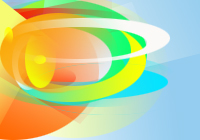Treatment
usually involves medication, psychotherapy or a combination
of both. Other treatments may include electroconvulsive
therapy (ECT), light therapy and alternative treatments.
Medication
There
are more than 20 antidepressant drugs currently available.
Antidepressants correct the chemical imbalance in the brain.
Because a variety of drugs target different neurotransmitters
and imbalances of these neurotransmitters can vary from
patient to patient, some drugs may be more effective than
others for any individual. Sometimes a combination of drugs
is best.
There are four (4) groups of antidepressant medications
most commonly used to treat depression:
Tricyclic
antidepressants (TCAs) which include Elavil, Janimine, Tofranil,
Pamelor, and Norpramin. TCAs work by slowing the rate at
which neurotransmitters (chemical messengers) re-enter brain
cells. This increases the concentration of the neurotransmitters
in the central nervous system which relieves depression.
Monoamine
oxidase inhibitors (MAOIs) include Nardil and Parnate. MAO
is an enzyme responsible for breaking down certain neurotransmitters
in the brain. MAOIs inhibit this enzyme and restore more
normal mood states.
Lithium
carbonates, including Eskalith and Lithobid. Lithium reduces
excessive nerve activity in the brain by altering the chemical
balance within certain nerve cells. This drug is effective
is treating bipolar disorder.
Selective
serotonin reuptake inhibitors (SSRIs) include Prozac, Zoloft
and Paxil. SSRIs act specifically on serotonin, making it
more available for nerve cells, thus easing the transmission
of messages without disrupting the chemistry of the brain.
Medication
usually produces a marked improvement by six weeks, but
may require up to 12 weeks for full effect.
Psychotherapy
Psychotherapy
involves talking to family doctor, counselor or therapist
about things that are occurring in a person's life. The
aim of psychotherapy is to remove all symptoms of depression
and return a person to a normal life.
There are three psychotherapies available to treat depression:
behavioral therapy, cognitive therapy or interpersonal therapy.
Behavioral therapy focuses on current behaviors, cognitive
therapy focuses on thoughts and thinking patterns, and interpersonal
therapy focuses on current relationships.
Although psychotherapy may begin to work right away, it
may take eight to 10 weeks to show a full effect for some
people.
Electroconvulsive therapy (ECT)
ECT,
also called electroshock treatment, is used for severely
depressed patients and/or those who have not responded to
antidepressant medication and/or psychotherapy. During this
therapy, an electric current travels through electrodes
placed on the temples, causing a generalized shock that
produces biochemical changes in the brain.
Light Therapy
In
light therapy, a special kind of light called a broad-spectrum
light, is used to give people the effect of having a few
extra hours of daylight each day. Light therapy is helpful
in treating people with seasonal affective disorder (SAD).
SAD is a serious depression that recurs each year at the
same time, starting in fall or winter and ending in spring.



